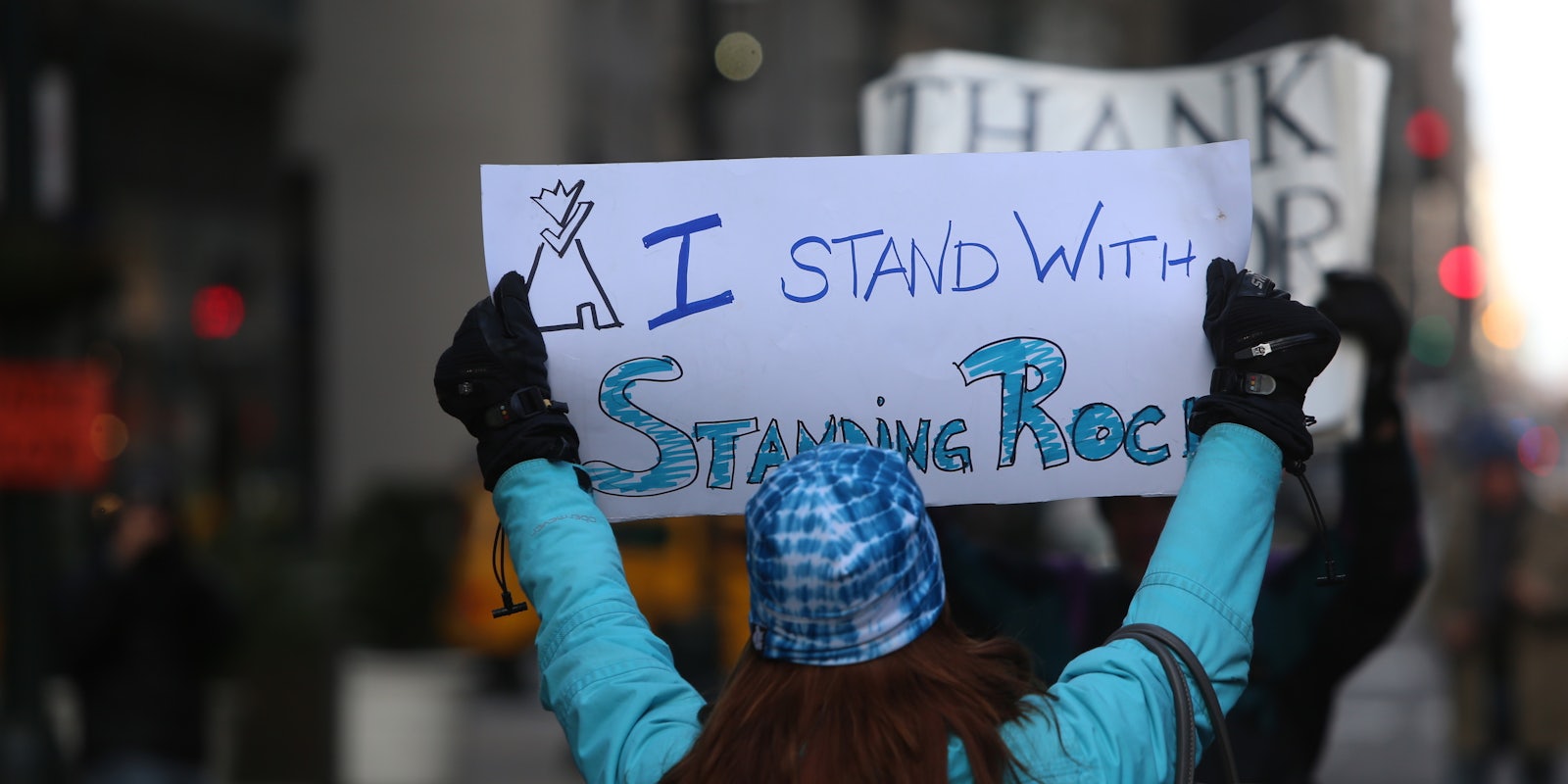The American Civil Liberties Union is fighting a police warrant to search the Facebook group devoted to protesting the Dakota Access Pipeline in Washington state.
The ACLU filed a motion in Whatcom County Superior Court on Wednesday to block a police warrant to search the Bellingham NoDAPL Coalition’s Facebook page. A hearing is scheduled for Tuesday morning. According to the ACLU, the Whatcom County Sheriff’s Department served Facebook with a warrant seeking data on not just the NoDAPL protesters themselves, but on people who merely interacted with the Facebook group.
As of Thursday morning, the Bellingham NoDAPL Facebook group has roughly 1,090 followers.
“Overbroad warrants such as this one have far-reaching implications,” said Brett Max Kaufman, an attorney with the ACLU’s Center for Democracy, in a statement. “Government requests for information protected by the First Amendment must meet a high bar in order to ensure that political speech and advocacy are not chilled. The Constitution gives wide berth to that kind of civic participation, and law enforcement must respect that space in carrying out its activities.”
According to the motion, the police issued the warrant on Feb. 16, following a protest by the NoDAPL group. The Bellingham Herald reported that the protesters blocked Interstate 5 in Bellingham for more than an hour on Feb. 11 and caused traffic to back up four miles.
Despite the group blocking traffic, the ACLU claims that the protest was peaceful and no arrests were made.
Neah Monteiro, a Bellingham resident and a leader of the local NoDAPL chapter, received an email from Facebook a week after the protest informing her that it had received a warrant from law enforcement seeking information about the NoDAPL Facebook group and would be forced to comply unless Monteiro filed a motion to quash the warrant in court. Monteiro, who created the Bellingham NoDAPL Facebook group back in October, serves as administrator of the group.
The details police requested from Facebook included the stored contents of the Facebook group’s account, including messages, photos, videos, wall posts, and location information for the 12 days that included the planning and coordination of the Feb. 11 protest.


